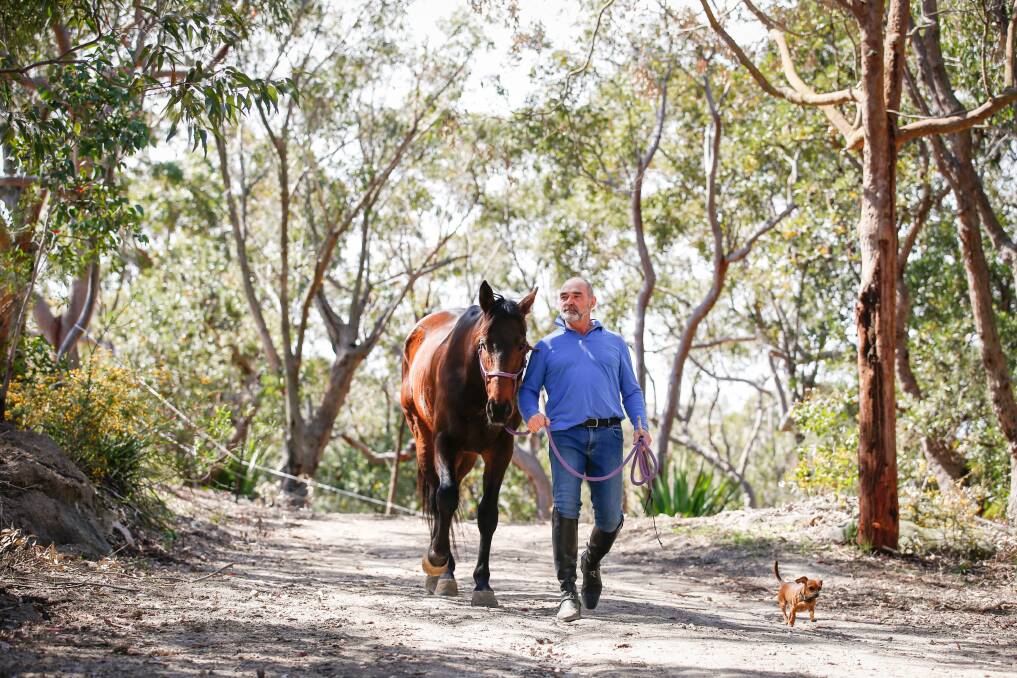
For many members of the defence forces, returning from conflict is just the start - then comes an entirely different series of challenges back in the real world.
Subscribe now for unlimited access.
or signup to continue reading
The difficulty many veterans face isn't just from what they've been exposed to in war, but the fact life in civilian society requires a major adjustment.
Awareness has grown, perhaps belatedly, about the mental health challenges veterans face, post-traumatic stress disorder (PTSD) in particular, and the support many need. It even justified a Royal Commission into the horrific rate of veteran suicides, with a final report due in June.
This support can take many forms, from friendship to psychologists to sport, and there has also been a growth in alternative therapies - like the Horse Aid program run by former mounted police officer Scott Brodie around the Illawarra.
Brodie calls the process veterans need "unsoldiering" - a bit like peeling back the intense training to return to normal life.
In the Horse Aid programs, veterans come to the farm or equestrian centre first for a day, then for several if they wish, and spend their time with Brodie, other horse mentors, and magnificent animals which are themselves often recovering from a grim time after being discarded from the horse racing industry.
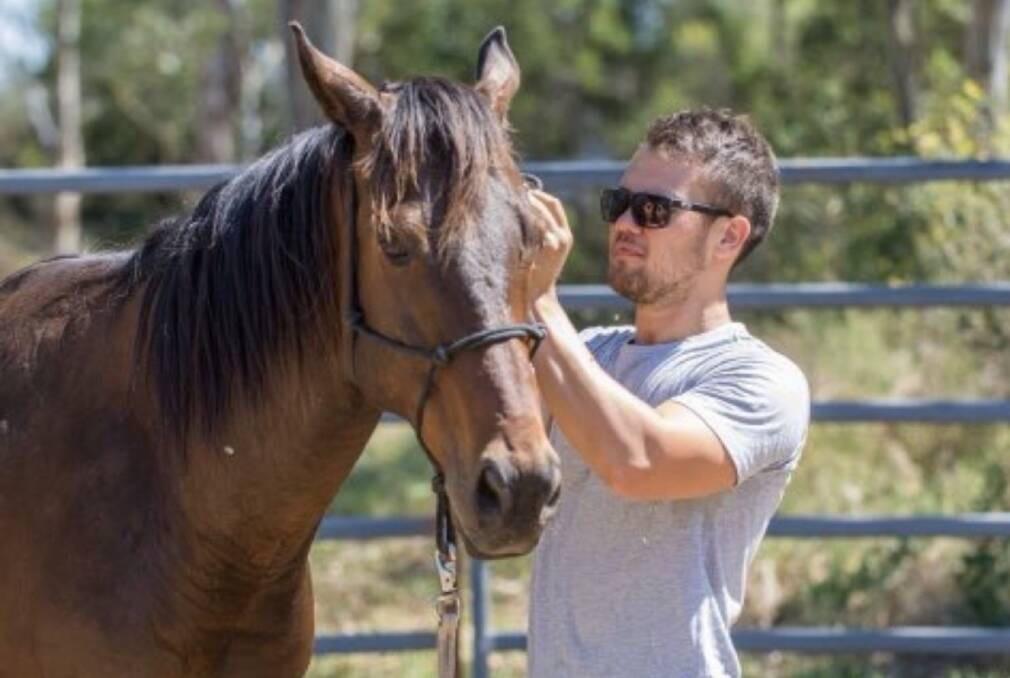
It's the latest chapter in what has been a long relationship between Australian soldiers and horses, from as far back as the Boer War and World War 1.
But instead of being used for fighting, this time the animals are a calming friend, allowing people to focus on their needs in a structured, supporting environment.
Brodie says it's hard to put a finger on why horses can be so effective but they "definitely have an emotional effect on people".
"When you start to work with horses, you have to have an honesty about you; you have to be in the moment," he said.
"Horses don't suffer people that are putting on a front. A lot of the guys and girls who are involved with PTSD may lose sight of who they are and how to communicate properly and, and they've got to put on a bit of a mask if you like, but horses see straight through the mask.
"So unless you're genuine, it's pretty hard to get horses to work the way we get them to work. People have to sometimes maybe reach out and grab a little bit of assertiveness that they don't have anymore.
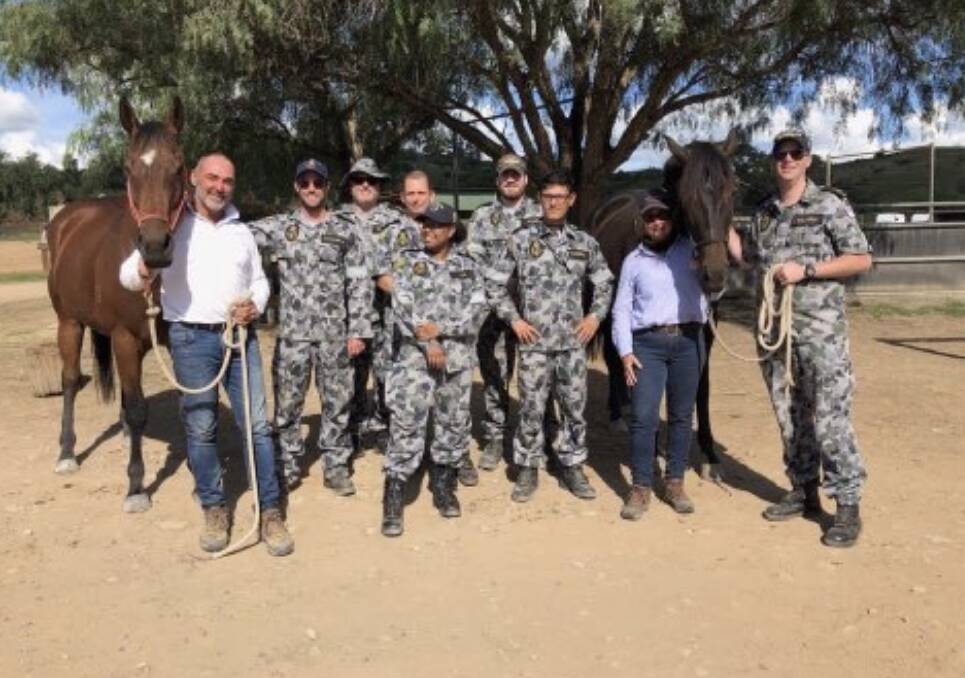
"They might have lost their confidence and a lack of assertiveness - and sometimes guys and girls can be overly aggressive and on attention all the time. The horses don't deal with that either.
"So lots of people have to find ways to find some middle ground where they can communicate with the horses to be able to get through the sort of things that we like to do with them."
Brodie travelled to Brisbane and testified before the Royal Commission into Defence and Veteran Suicide in 2021, and found himself with other like-minded people who were running alternative therapy for veterans, often centred around the outdoors.
He told the Royal Commission how the work he did was part of veterans being "unsoldiered".
"They have had ongoing constant training to get them to a point where they need to be, as soldiers, and then they need to be unsoldiered, they need to be brought back," Brodie said.
"In a similar way they are brought up to be soldiers, they need to be brought back to be taught how to be civilians again - because a lot of these guys struggle with the real world when they get out of the situation."
Brodie was asked by the commissioners how he measured the program's success. His response was blunt: of the hundreds of veterans who had done it, none had taken their lives.
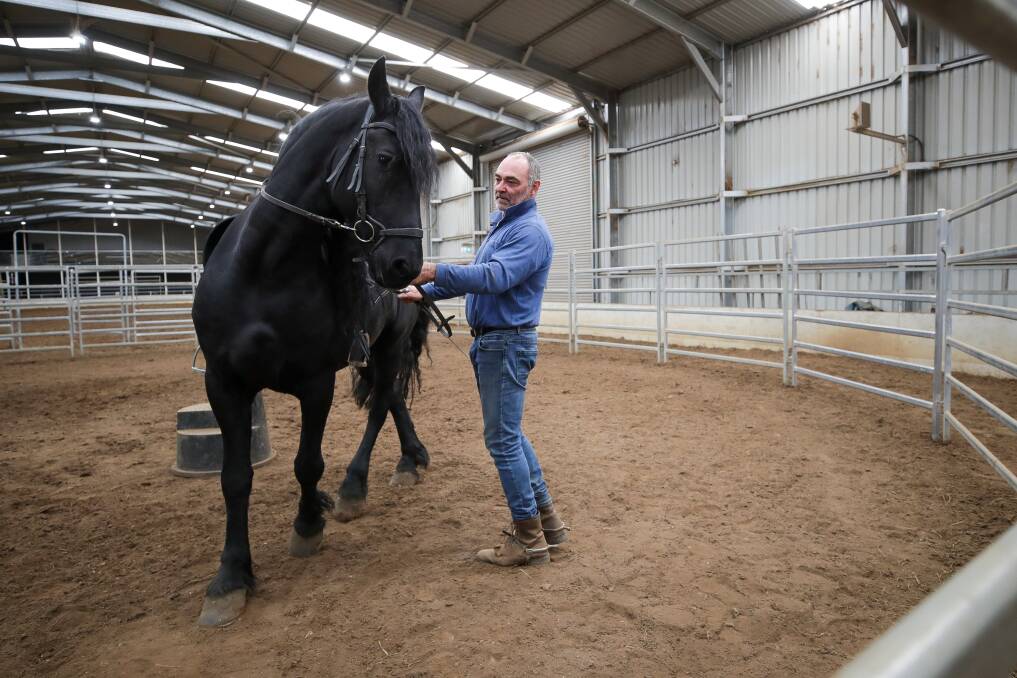
"I believe plenty that entered our program were very close to that at times, and none of them have gone are with it, and I guess that's quite a measure of success as far as I'm concerned," he said.
The horses he uses are often thoroughbreds, at various stages of life post-racing track, which brings a parallel between animal and veteran, he said.
Being able to use horses that are not all trained to be around novices adds another element to the familiarisation work.
"They're a very intelligent, very sensitive horse and they're really attuned to people's body language largely because they deal more with people than they do with horses in their racing lives - from the time they're taken from their mother," he told Weekender.
"They don't deal with other horses very much except when they race ... but they deal with people every day.
"So they get really good at reading people's body language and sometimes that's good and sometimes it's bad.
"We do find some of the damage to racehorse, some of the issues with race horses if you like, is not unlike PTSD.
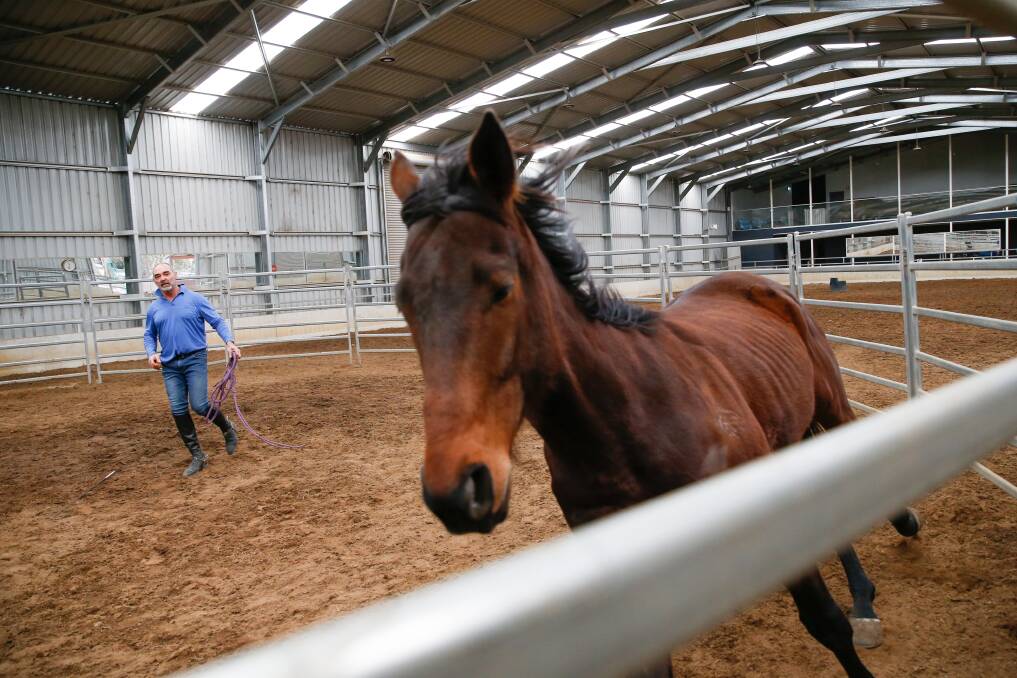
"There's some good stuff about them as well, but they have experiences that can sometimes be traumatic."
Post-to-post stress perhaps.
Brodie knows well what it's like to be in high-pressure situations with a four-legged beast - "to be able to ride it through a crowd of 100,000 people and pick out the person if you needed to get without getting anybody else hurt" requires a special relationship in what can sometimes be described as "a warlike situation".
The most severe he remembers was at a protest that turned violent in Martin Place in Sydney. A line of police was protecting an embassy, under attack from a mob throwing building debris.
He and colleagues were able to manoeuvre through the crowd and hold their ground as the police were able to escape, to be replaced by officers with shields, and withstanding the threat of violence while the horses stayed calm enough to not lash out.
"Every day I have a moment where the hair stands up on the back of my neck," Brodie said.
"The connection that you have - I don't think there's any other in the world or in nature, that the two beings of such different identity have the connection that people have with horses."
The next Horse Aid program is to be held in the Southern Highlands, and there are are places open for upcoming programs as well. Expressions of interest can be made through the website horseaid.com.au
- Our news app has had a makeover, making it faster and giving you access to even more great content. Download The Illawarra Mercury news app in the Apple Store and Google Play.


